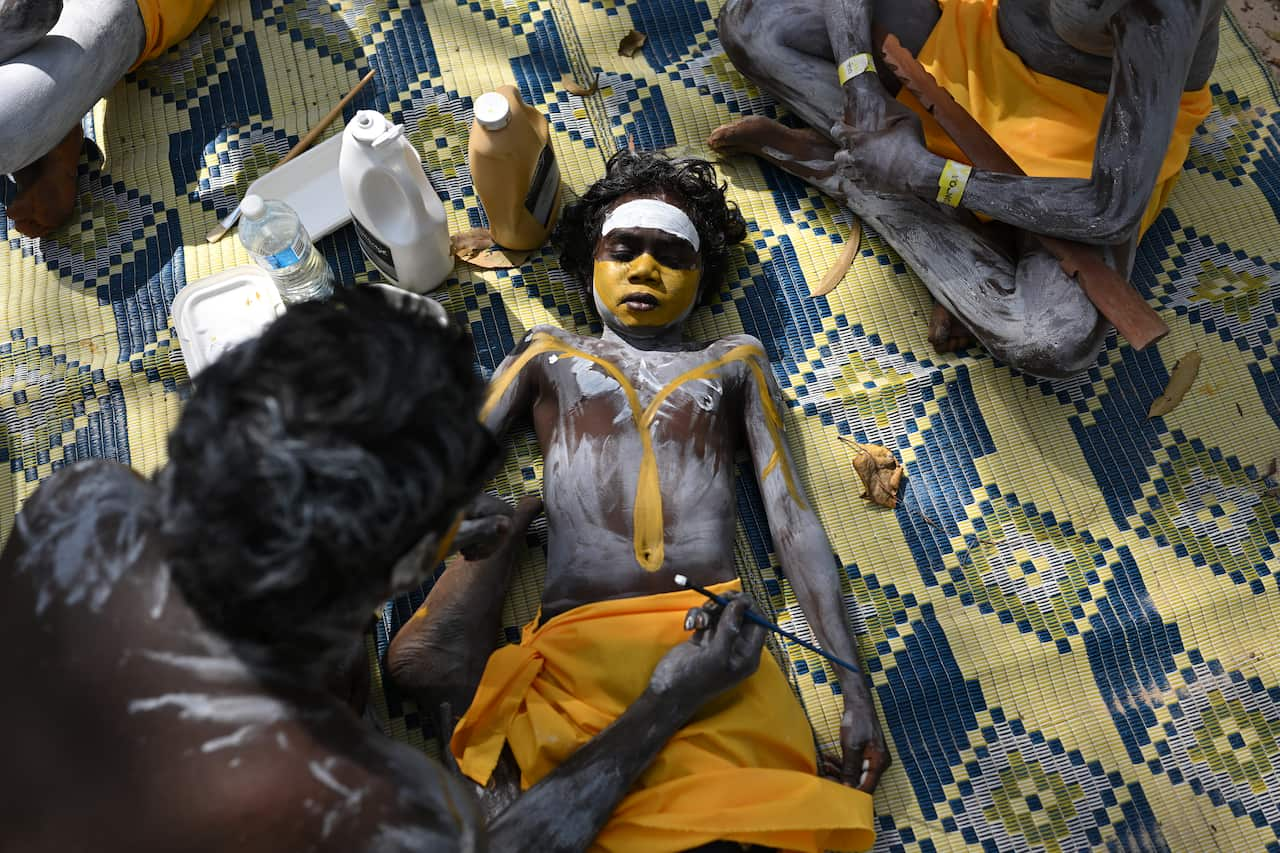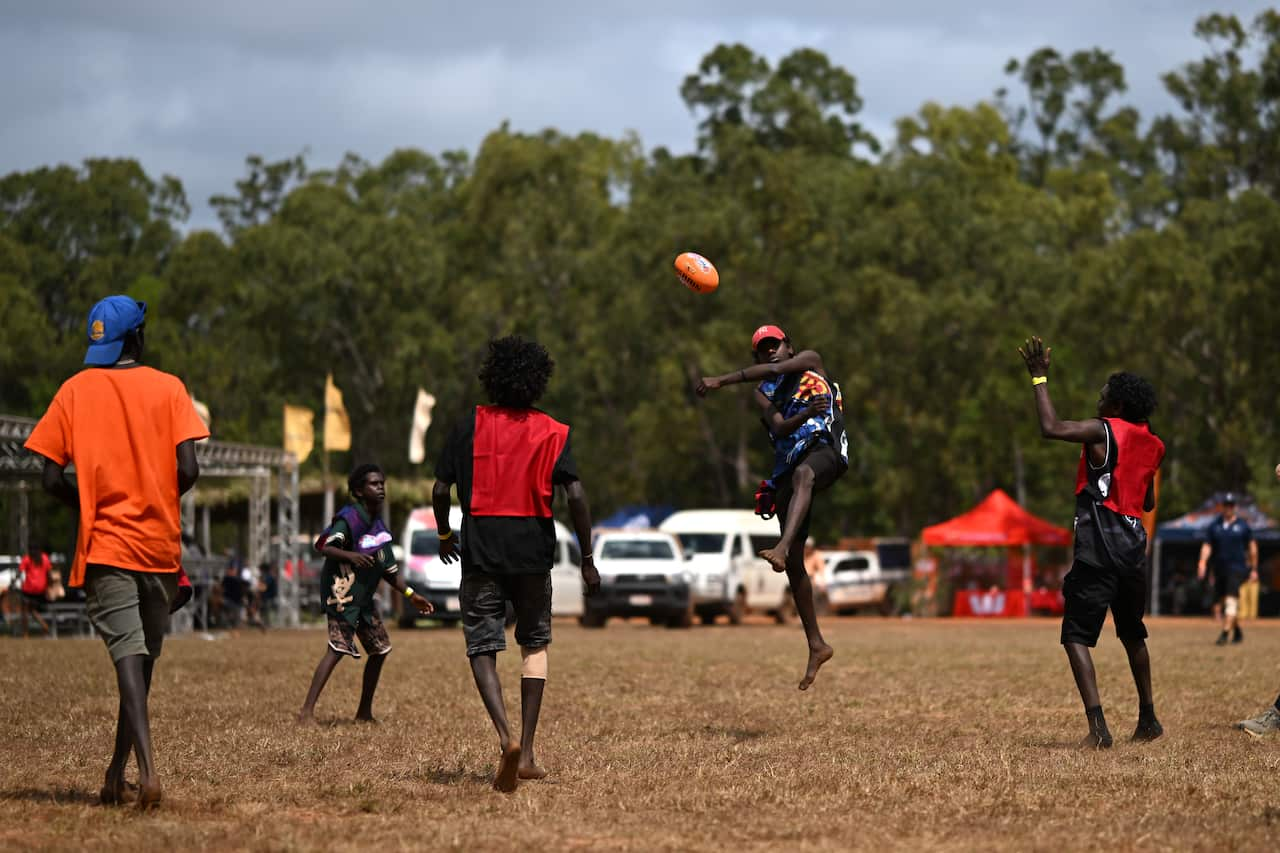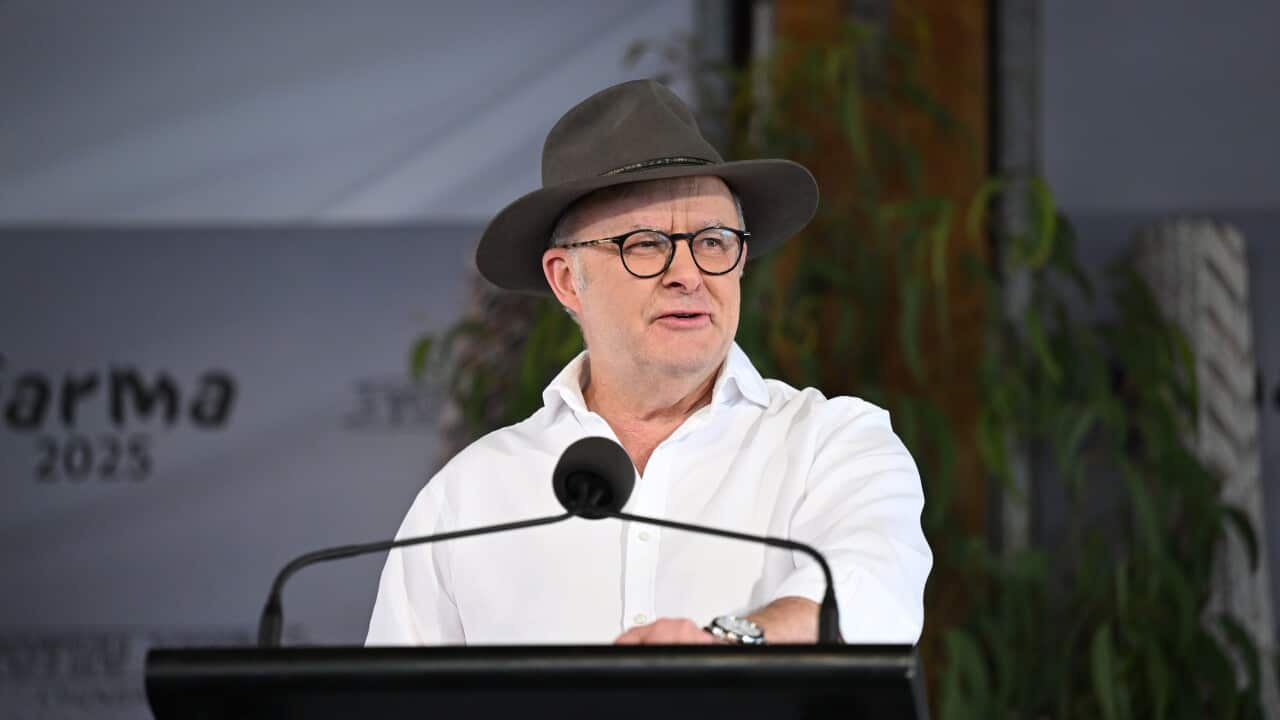As the annual Garma Indigenous festival kicks off in north-east Arnhem land, the Northern Territory justice system is undergoing a seismic shift.
The territory government, led by chief minister Lia Finnochiaro, of the Country Liberal Party, pushed through new laws affecting young offenders this week.
It reverses the former Labor government's changes to youth justice legislation to make detention a last resort. The use of controversial spit hoods in custody has also been reintroduced, along with other measures to allow "reasonable force where needed" in dealing with alleged young offenders.
"This government is delivering what Labor never would: real consequences for serious crimes, and a justice system that puts victims first," a statement from deputy chief minister and corrections minister Gerard Maley says.
Since sweeping back into power with a 17 out of 25 seat majority, the government has also reduced the age of criminal responsibility back to 10. The former Labor government had legislated to lift it to 14.
At the same time the new Productivity Commission investigation into the Closing the Gap measures has found adult and youth incarceration rates in the NT are continuing to rise.
As many Indigenous Elders in Arnhem Land are quick to point out, these are not just statistics, these are young people who are being taken into the prison system when they are still in primary school.

The NT government did not conduct specific consultations on the new laws but NT Aboriginal Affairs Minister Steve Edgington says these are conversations that have been going on for years, and he makes no apology for a tough-on-crime approach.
It places Garma’s annual political talks under a darkening cloud, with conflict brewing about how to deal with youth crime and incarceration.
'Where is the accountability?'
On the eve of the talks, two architects of the original Uluru Statement from the Heart — Megan Davis and Pat Anderson — co-authored a statement in response to the traumatic realities of the failure of Closing the Gap efforts on many fronts.
"Our children are being locked up, our elders are dying, and our people are continuing to live in a country where their rights are neglected. Their voices and calls for help falling on deaf ears," they wrote.
"Where is the accountability? There is none. The agreement is not legal, and it is not binding."
As Prime Minister Anthony Albanese walks the red dust path to the traditional Bunggul grounds on Saturday to sit with Gumatj Elders and appreciate the traditional dances of the world’s oldest continuous culture unfold, he will be under pressure to do more.
More at a federal level to ensure the gap is closing, and potentially more to address concerns about the NT government’s decisions.
Given the NT is not a state, the federal government holds the purse strings and immense power over its funding and whether to keep programs in place.
While constitutional changes for an Indigenous voice to Parliament were not endorsed by the Australian people, there is still a movement among Aboriginal and Torres Strait Islander people to assemble a representative body, to take priority issues to the government for a solution.
When he was elected as prime minister in 2022, Albanese committed to the Uluru Statement from the Heart in full.

While the referendum for a Voice failed, the statement also included treaty and truth-telling.
On Saturday, there were hopes from some among the Indigenous community that the prime minister would endorse a truth-telling process in a broad sense — which would come as a relief to advocates who have been pushing for reconciliation to include a reckoning over Australia’s history and a process of confronting the injustices of the past.
"I know there are members of the Yoorrook Justice Commission here at Garma this weekend," Albanese said in an address.
"Their Commission has spent the last four years recording the testimony of thousands of people across Victoria. Reflecting on the wrongs of the past, sharing the pain their families and ancestors suffered, as a result of dispossession and discrimination. Policies and practices built on exclusion."
Albanese acknowledged Indigenous people were cut off from culture, Country, historical place, land as well as justice and opportunity.
"As a nation, we are still coming to terms with the full truth and toll of this exclusion," he said.
"Even as we continue on the long journey of understanding our past, we must meet our responsibility to the future.
"We must seize and harness the power of inclusion.
"The sense of belonging that comes from having a stake in the economy, being embraced by society and equal in the law of the land."
The prime minister says a newly established "economic partnership" between government and Aboriginal and Torres Strait Islander organisations will deliver "economic sovereignty" to First Nations communities.
Opposition leader Sussan Ley has hit back, saying "the scale of the challenges in Indigenous Australia are much bigger than the scale of the response that I have heard from Prime Minister Albanese today".
"We have 19 indicators in Closing the Gap, four of those are going backwards, and what really concerns me is that they're indicating a lack of progress, in fact a retreat, in critical areas relating to children and education and youth incarceration.
"We know that education is vital for the future of young people wherever they are in Australia. So it's so disappointing to see this plan that the prime minister calls a 'plan for economic empowerment' is failing in these critical areas."
Responsibility to protect the next generation
Last year, Albanese's message was about economic empowerment, and while north-east Arnhem Land is considered the gold standard of remote Indigenous employment, there are other areas that have steep long-term unemployment rates and little prospect of changing.
The chairman of the Yothu Yindi Foundation, singer Djawa Yunupingu, is the senior leader who will welcome people to the Gumatj lands this weekend.
Yunupingu thinks there needs to be more accountability around the Closing the Gap measures too.
"It's something that we need to really do for the future of our people," he told NITV’s Emma Kellaway.
As toddlers play in the ancestral sands of the Bunggul grounds, and school kids toss around a footy on the Garma oval, Yunupingu knows the responsibility the community has to protect the next generation.
In the view of so many community leaders, they see the federal government as having a shared responsibility as to what happens next.
For the latest from SBS News, download our app and subscribe to our newsletter.

